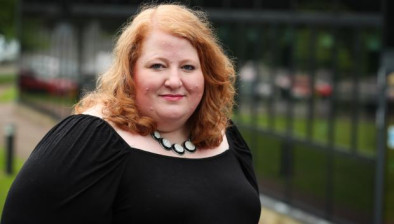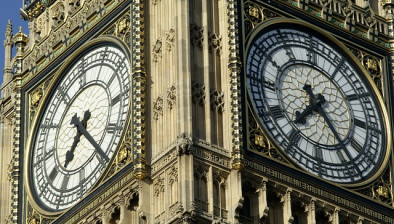NI Court of Appeal: Decision refusing public inquiry in Bridie Brown’s case unlawful

Northern Ireland’s Court of Appeal last week determined that the refusal of the Secretary of State to hold a public inquiry into the 1997 murder of Sean Brown was unlawful.

About this case:
- Citation:[2025] NICA 16
- Judgment:
- Court:NI Court of Appeal
- Judge:Lady Chief Justice Siobhan Keegan
Delivering judgment for the Court of Appeal, Lady Chief Justice Siobhan Keegan remarked that “the United Kingdom has remained in continuous breach of the procedural limb of the Article 2 obligation since 1997. This is a shocking state of affairs in that a quarter of a century has passed since Sean Brown was murdered and yet there has been no lawful inquiry into the circumstances of his death.”
Tony McGleenan KC, Philip McAteer and Laura Curran appeared for the appellant, the Secretary of State of Northern Ireland, instructed by the Crown Solicitor’s Office. Des Fahy KC and Mark Bassett appeared for the applicant/respondent, instructed by KRW Law. Frank O’Donoghue KC and Andrew McGuinness appeared for the notice party, the Independent Commission for Reconciliation and Information Recovery.
Background
On 12 May 1997, Sean Brown, the late chairman of the Bellaghy Wolfe Tones GAA Club, was locking the gates to a training ground when he was ambushed. He was brutally murdered and his body was found next to a burning car the following morning.
The deceased’s widow, Birdie Brown (the applicant), raised grave concerns in relation to the efficacy and diligence of the police investigation into her late husband’s death which closed in July 1998, with no charge arising therefrom.
A number of interventions took place, including an investigation by the Police Ombudsman for Northern Ireland (PONI) which followed from a complaint by the applicant in 2001. The results of that investigation inferred that certain errors and omissions in the original investigation were not due to gross carelessness but instead were part of a ploy to conceal the circumstances of the deceased’s murder.
A further police investigation took place following the publication of that report in January 2004, which did not identify any new lines of inquiry.
An inquest into the deceased’s death was opened in 1997, with 40 preliminary hearings taking place during which state agencies were criticised for failing to comply with their disclosure obligations. Some 18 years later, Mr Justice Patrick Kinney echoed that sentiment after he was appointed coroner as part of a five-year plan to hear outstanding inquests.
Mr Justice Kinney, as coroner, set out a draft scope of the inquest on 27 March 2023. The Crown Solicitor’s Office (CSO) wrote to the applicant’s solicitors in relation to disclosure and a proposed application for public interest immunity (PII). A number of PII certificates were signed and PII hearings were conducted in January and February 2024.
On 27 February 2024, the gist of the redacted sensitive materials was read to the coroner in open court which suggested that the intelligence material indicated that a number of individuals involved in the murder were agents of the state. Mr Justice Kinney ruled that the disclosure of the material under consideration would create a real risk of serious harm to the public interest and he concluded that he could not satisfy his duties in relation to the inquest in the absence of the material covered by the PII.
Mr Justice Kinney expressly requested the Secretary of State of Northern Ireland (SOSNI) to establish a public inquiry and to confirm within 4 weeks that he had done so, but this was not done. The applicant issued judicial review proceedings on 22 May 2024 contending that the decision not to establish a public enquiry was contrary to s.1 of the Inquiries Act 2005 and an order of mandamus compelling SOSNI to establish a public enquiry.
The High Court
The High Court made an order of mandamus requiring the SOSNI to establish a public enquiry into the murder, in light of inter alia the content of the statement made in open court and where it was apparent that this information had been withheld from PONI and the investigation which followed its report.
The court also considered that efforts to investigate the death were wholly inadequate and that the inquest process had been frustrated by the failure of the state to comply with statutory disclosure obligations.
SOSNI appealed, arguing inter alia that he had relied upon ministerial advice and that his discretion as to whether to order a public enquiry had been exercised lawfully and in compliance with Article 2 of the European Convention on Human Rights (ECHR).
The Court of Appeal
Lady Chief Justice Keegan noted that the starting position in the appeal was that both appellant and respondent agreed that to date, there has been no effective investigation compliant with Article 2 ECHR into the deceased’s murder.
Having considered the applicable legal principles, the court set out that the key elements of an Article 2 compliant investigation were those summarised in Re Dillon [2024] NICA 59 and that the primary question for the court was whether having the power contained in s.1 of the 2005 Act, the SOSNI unlawfully refused to exercise it.
The Lady Chief Justice explained that article 2(1) imposes three duties on the state: a negative duty to refrain from taking life, the positive duty to investigate deaths for which the state might be responsible, and a positive duty to take steps to safeguard and protect the lives of those within its jurisdiction.
The Court of Appeal considered that there was a binary choice presented to the SOSNI: to refer the case to the Independent Commission on Reconciliation and Information Retrieval (ICRIR) or to establish public inquiries.
As to the ICRIR, the court remarked that in Dillon several deficiencies had been identified in relation to inquest cases given disclosure provisions and lack of effective representation of next of kin, and that the ICRIR structure differs from that afforded by inquests or public inquiries and was “not fit for purpose in Mrs Brown’s case… Mrs Brown is 87 years old. She has been pursuing her remedy for 28 of those years. So, in this case, the ICRIR is not fit for the purpose of delivering the remedy she needs now.”
The judge highlighted that the sole remedy currently existing on the statute book is a public inquiry under the 2005 Act, which encompasses the interrogation of sensitive materials by virtue of the statutory regime offering a “black box” mechanism.
Noting the ministerial advice given to the SOSNI, which recommended inter alia to refuse a public inquiry and to encourage Mrs Brown to meet with the ICRIR, the court considered that the principal reasons put forward by the SOSNI for refusing a public inquiry included issues of additional costs and administrative burden on state agencies.
The Court of Appeal was unconvinced, finding that the assumption that the process would be costly did not withstand scrutiny as the coroner had already undertaken “the bulk of the work” and that “the ‘preference’ of the agencies for the ICRIR has to be set against the consideration that this process is inchoate, not currently fit for purpose and is currently not Article 2 compliant. Trying to make it fit for purpose will involve costs which are likely to significantly impact public finances. It will also necessarily lead to further delay.”
In particular, the Lady Chief Justice opined: “Under the 2005 Act public inquiries already have the necessary mechanisms built into their architecture to deal with sensitive material — unlike inquests or the ICRIR.”
The court considered that the approach of a bespoke inquiry process under the 2005 Act was never canvassed with the SOSNI and so the decision to refuse Mrs Brown access to that remedy was flawed and proceeded on an “incomplete marshalling of the options, unevidenced assumptions and a failure to consider or analyse their applicability in the circumstances of her case”.
Explaining that the decision was also flawed where the SOSNI based his decision on foot of advice from civil servants, advice which inter alia failed to acknowledge that many of the necessary components for a public inquiry already existed by virtue of the advanced nature of the inquest already carried out, gave no consideration to how this could reduce costs and the impact on public finances, failed to give proper weight to the inadequacy of the ICRIR and gave questionable weight to the interests of Ministry of Defence and MI5 officials.
Conclusion
Noting that it was “mindful of constitutional boundaries, and the trust on the government to comply with declaratory orders”, the court said it would adopt a more staged approach than the High Court and would not contemplate a mandatory order without first allowing the SOSNI to reflect upon the judgment of the court.
Accordingly, the Court of Appeal made a declaration to the effect that an independent public investigation must be held without further delay in order to satisfy Article 2 ECHR, and allowed four weeks to the SOSNI to consider the judgment and declaration and to confirm the mechanism by which to comply with the order.
In the matter of an application by Bridie Brown for Judicial Review [2025] NICA 16











